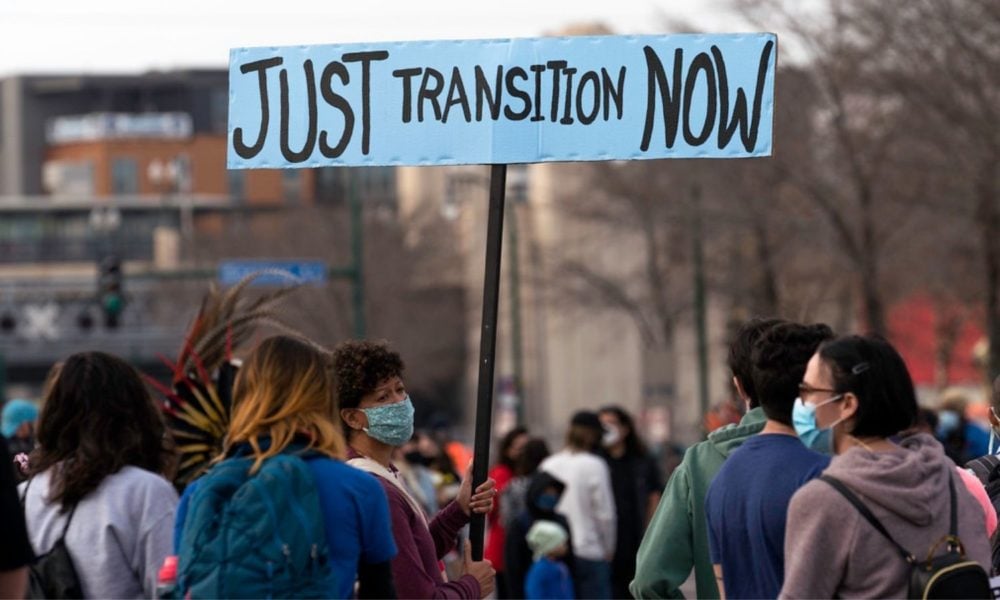The transition to a renewable energy economy may be exciting to renewable energy advocates and scholars, but it will be painful for many people unless we implement proactive just transition policies now. Advocates of renewable energy transitions must complement our own sense of urgency regarding climate action with attention and care for the needs of workers whose livelihoods are embedded in the fossil fuel industry. Worker retraining policies should be rooted in the concerns of workers themselves. It is not enough to simply regurgitate the claim that renewable energy will create more jobs than fossil fuels will lose. While that is true, research from economists Robert Pollin and Brian Callaci has suggested that displaced fossil fuel workers will not necessarily be the ones receiving those new clean energy jobs. Policy intervention is imperative to ensure the people who need new jobs in new industries have access to them, and the communities who rely on extractive industries are not left behind.
Economies at stake
A 2019 study by The Brookings Institution and the Columbia University Center on Global Energy Policy found there are 26 counties across 10 states in the U.S. that can be designated as “coal dependent”, meaning that a loss of coal mining would directly and significantly affect the fiscal stability of the entire community. As fossil fuel infrastructure leaves these communities, there will be problems with the provision of community resources such as public transportation and schools. Fossil fuel facilities are often significant contributors to the tax base of these municipalities, and the communities may struggle to maintain their budgets without them. This research emphasizes the depth to which the U.S. economy is entrenched in fossil fuels, and the care society must take to detangle itself from it.
Policymakers need to plan for the community-scale divestment and resource starvation that will occur when fossil fuel companies close their doors. Action must be taken with care and humility, because anything done to shift away from coal and other fossil fuels will have unintended consequences. The quality of education available to the children of these communities, the safety of their roadways and public works, and the level of funding available for their fire departments and hospitals will be threatened. Therefore, the renewable energy field must be ready and willing to advocate for the provision of support for these communities.
Research done by the Union of Concerned Scientists in collaboration with the Utility Workers Union of America in 2021 found that support should come in the form of “five years of wage replacement, health coverage, continued employer contributions to retirement funds or pension plans, and tuition and job placement assistance.” They estimated these provisions would cost about thirty three billion dollars over the course of twenty five years, which is a small portion of the investment needed to complete the transition to a carbon free economy. The BlueGreen Alliance’s National Energy Transition Policy Framework includes a similar estimate of thirty two billion dollars over ten years to provide wage replacement, pension credits, healthcare support, and training or educational assistance for workers and their children for five years.
Identities at stake
For many people, the shift away from fossil fuels is not just the loss of a job, it is the loss of their culture and sense of belonging. Research from the Just Transition Listening Project indicates that when a person grows up among generations and generations of fossil fuel workers who take pride in propping up the United States economy, the destruction of that industry is genuinely painful because it feels like the destruction of their identity. As society moves away from fossil fuels, fossil fuels workers struggle to maintain the sense of assuredness that comes with knowing exactly who you are and what your role in society is. We cannot leave these workers to sort through that disillusionment without some form of legislative support.
While climate science tells us we must embrace the transition to the renewable energy economy to prevent catastrophic climate change, society has a moral obligation to help these communities through this difficult transition. The nation must approach these communities with gratitude for the personal, familial, and community-wide investments they have made in order to power this country for centuries. Renewable energy advocates must take a step back and allow our fellow Americans to mourn the loss of their identity, their family’s identity, and their community identity without accusing them of being anti-progress or anti-environment.
I strongly encourage myself and others in this field to interrogate our preconceptions about those who are not “on our side” in the fight for climate action. Are they really our enemy, or, are they hard-working people who have been blamed by our industry for environmental degradation they did not create? We must emphasize that the fossil fuel industry has spent years peddling misinformation and hiding behind their frontline workers as a reason to delay climate action.
Society must take legislative action on climate change, and it must do so now. However, we must accomplish that goal without disrespecting the workers and communities dependent on the fossil fuel industry.

